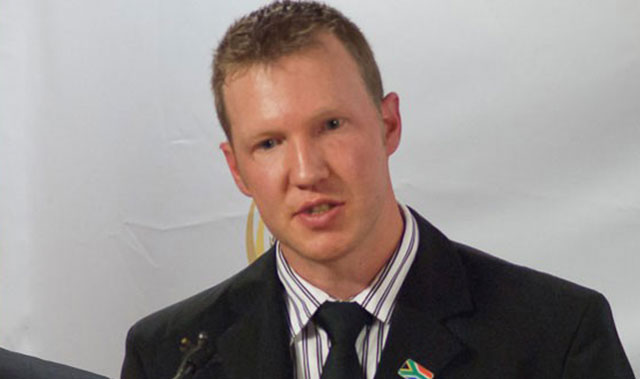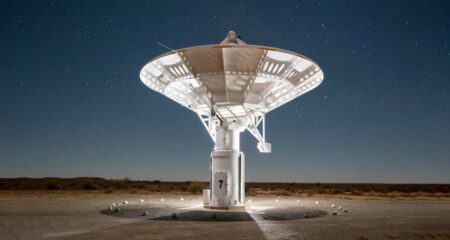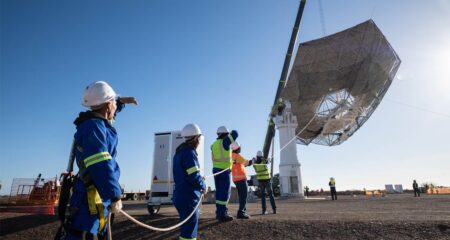
Vox Telecom has beaten six other bidders to win a contract from the Square Kilometre Array (SKA) in South Africa to deploy satellite-based Internet access and voice telephony to 300 farmers in areas around the sensitive radio astronomy telescope project in the Karoo.
In terms of the project, farmers that take up the offer will get free satellite receiver equipment and installation worth about R13 500. They’ll get a 2Mbit/s download and a 512kbit/s upload speeds and 2GB of data for R119/month. They can add data if they need more. They can also add a telephone line for R185/month.
Six farmers have had the equipment installed in the past week.
The SKA project office awarded the tender in an effort to minimise radio frequency interference in the areas around the highly sensitive MeerKAT and SKA radio telescopes. MeerKAT is a precursor to the bigger SKA project.
The area, in a remote part of the Northern Cape, is protected from harmful radio interference through the Astronomy Geographic Advantage Act.
This legislation allows the minister of science and technology to declare protected areas surrounding strategic optical and radio astronomy sites.
The SKA is an international effort to build the world’s largest radio telescope. Once completed, it will allow astronomers to monitor the sky in far greater detail, thousands of times faster than any system currently in existence.
“A radio telescope is a very sensitive radio receiver, sensitive enough to detect cellphones on the moon or on Jupiter,” says SKA South Africa site bid manager Adrian Tiplady.
Interference from laptops, cellphones and other equipment that uses spectrum has the potential to cause big problems for radio telescopes. “It can blind the telescope, stop a facility from operating and taking measurements and even permanently damage radio receivers.”
Indeed, the remote section of the Karoo where the MeerKAT and SKA telescopes are being built was chosen because of the low radio emissions in the area and the low population density.
Tiplady emphasises, however, that mobile operators that already run base stations in the small towns around the astronomy project won’t have to switch them off. But the SKA project office is working closely with the operators to try to minimise interference.
“We’ve been working with all the stakeholders in the declared area to look for ways where we can reduce their impact as far as possible,” says Tiplady. “We have been working with GSM operators to mitigate their impact. The alternative communications programme is there to ensure … a radio astronomy-friendly alternative means of communication.”
Vox Telecom’s satellite solution uses spectrum bands outside those that are of interest to the SKA. — (c) 2014 NewsCentral Media




